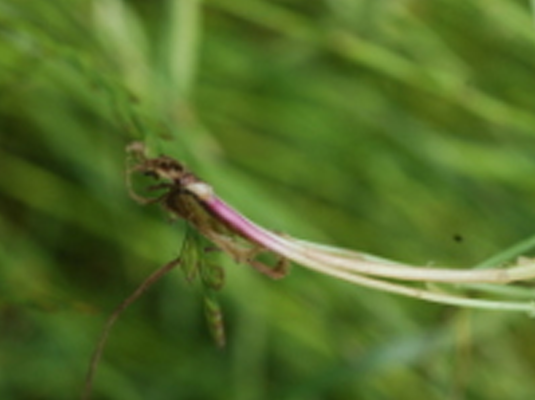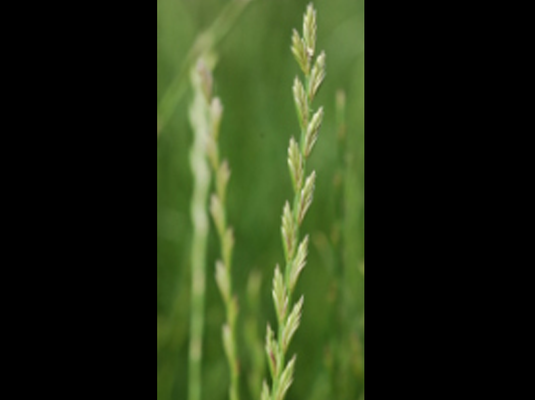Perennial ryegrass is a perennial, tussock-forming bottom grass.
Many varieties are well-suited for use as turf grasses. In areas with a maritime climate it remains green throughout the winter and comes up in early spring. Starts flowering in May/June. Culms usually regenerate only vegetatively after cutting or grazing. Perennial ryegrass is widespread on fertile, damp soils. A dominant species on roadside verges and grassland and one of the most commonly sown turf grasses for sports pitches, parks and lawns.
Very hard-wearing. Perennial ryegrass is one of the most important and valuable fodder and amenity grasses for temperate zones. It forms a dense sward that withstands heavy wear, has good regenerative ability and provides high quality forage (feed value 8). The most widely used species for permanent pastures is also suitable for reseeding. Less tolerant of peaty soils or areas prone to frost. Susceptible to snow mould when under prolonged snow cover. Cultivars have been developed and tested for use as turf grass and permanent pastures with specific requirements (peaty soils, high altitudes, dry areas).
| Leaf | Leaf folded in the bud, leaf sheath open and red at the base. The underside of the leaf is smooth and very glossy, auricles short, ligule short and straight, upper side of leaf ribbed. |
| Culm | Fine-stemmed, culm base distinctly reddish in colour, well-tillered, often spreading (bottom grass) approx. 30–60 cm, often geniculate. |
| Inflorescence | Loosely to densely packed two-row spike with terminal spikelet, composed of 15-20 alternately arranged spikelets with multiple florets, attached edgewise to the central axis. Each spikelet has 5-12 florets. The terminal spikelet has 2 glumes, but the inner glume is absent in the other spikelets. The lemma is awnless. |
| Fruit | Around 5-7 mm long grain, lemma curved with 5 faint veins. The pedicel is short and flat, almost rectangular. The grains are brownish grey in colour. The TSW is 1.2–3.5 g. Diploid forms and turf types have a lower TSW, tetraploid forms a higher one. |

